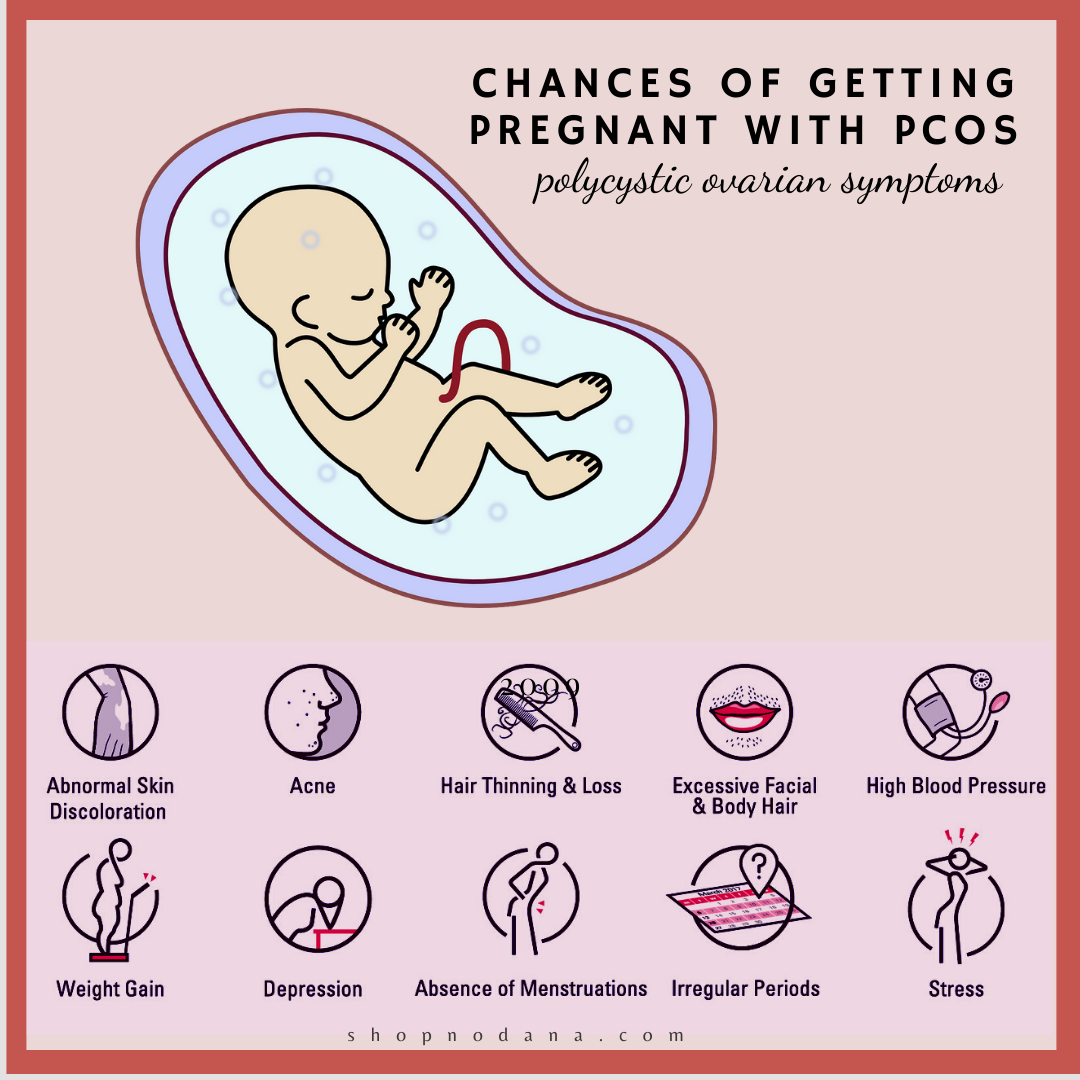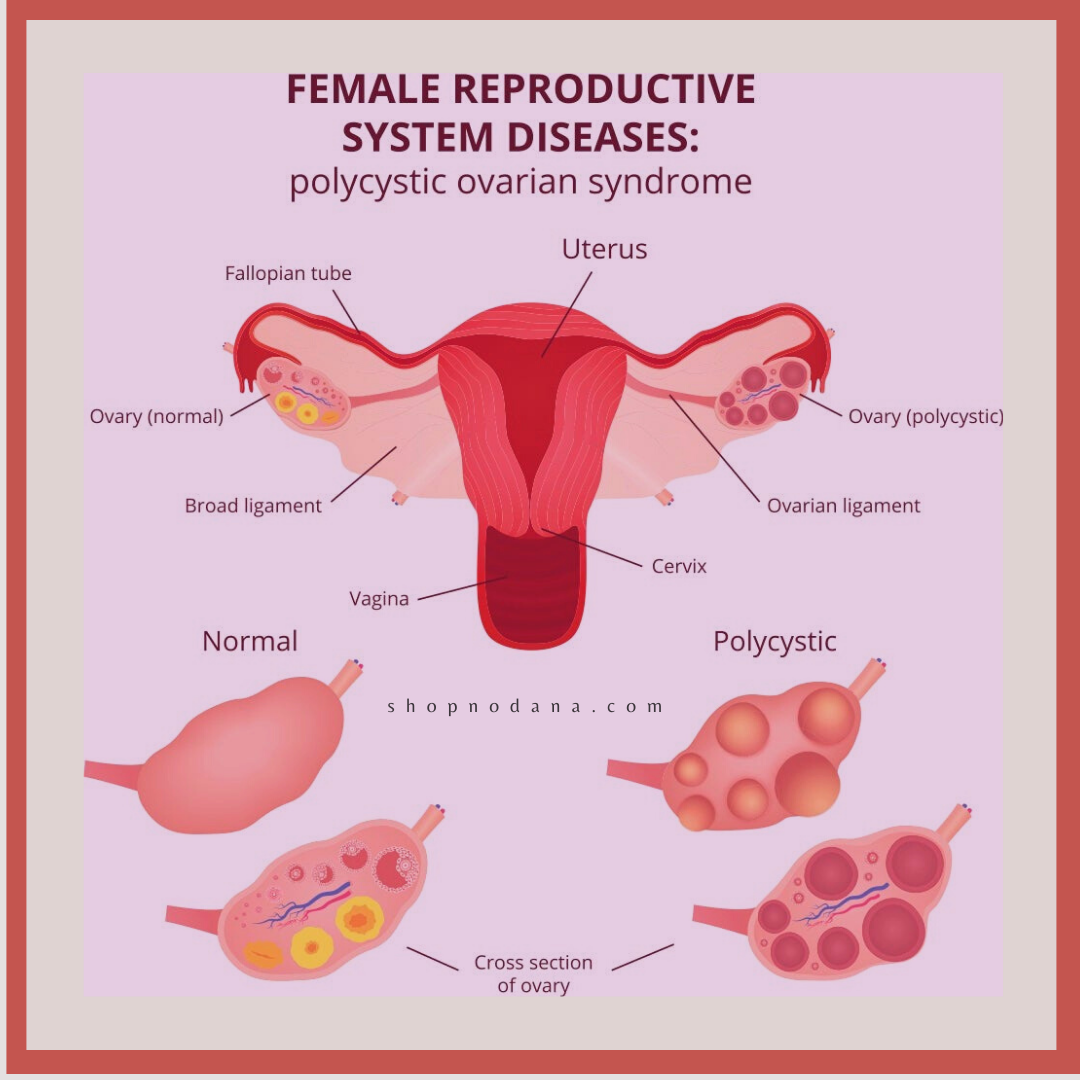Chances Of Getting Pregnant With PCOS
Do you have chances of getting pregnant with PCOS? PCOS is a hormonal condition that affects more than just your fertility, but you may be diagnosed first when you’re trying to conceive. This is because it is a common – and treatable – cause of female infertility.
According to the Centers for Disease Control (CDC), up to 12 percent of women in the United States have difficulty conceiving because PCOS is not treated. In fact, this number may be even greater because nearly 50 percent of women with this syndrome do not know they have it or are not properly diagnosed.
Having PCOS doesn’t mean you can’t get pregnant. It may be more complicated and you may need extra help. There is a lot you can do at home and with medical treatment to keep PCOS symptoms at bay and increase your chances of a healthy pregnancy.
Chances of getting pregnant with PCOS
Although fertility treatments are highly successful for PCOS sufferers, many women wonder can I get pregnant naturally with PCOS?
No one knows why some women develop PCOS. Nothing you do – or don’t do – causes you to have this condition. But if you start an early diagnosis and treatment suffering from the PCOS, along with other lifestyle changes, can help you get pregnant and prevent health complications from PCOS.
How does PCOS affect fertility?
PCOS is a hormonal imbalance that compromises the growth/maturation of an egg and interferes with the release of eggs. Ultimately, these effects affect ovulation. Women who have PCOS suffer from irregular periods in the common cases.
Many women with PCOS go several months without a period, and some only get two periods a year. If a woman is not ovulating she doesn’t have a chance to get pregnant.
So, while a woman with PCOS can get pregnant naturally, it is more difficult because ovulation is irregular and unpredictable. In most cases the quality of the egg can be affected by PCOS, so even if a woman does ovulate, she may still have difficulty conceiving.
Treating PCOS with Lifestyle Changes
If anyone wants to get pregnant without any kind of medication or fertility treatment with PCOS, there are options she can follow. By making lifestyle changes some PCOS patients have found success that promoting a healthy reproductive system. If a woman with PCOS changes her lifestyle may have a positive effect on PCOS symptoms include:
- Eat a nutrient-rich diet
- Choose anti-inflammatory foods
- Follow a regular exercise routine
- Lose weight
- stress management
Generally, a woman’s ovarian reserve naturally depletes as she gets older. Therefore, while we encourage women to consider practices that may facilitate pregnancy while suffering from PCOS.
The patient’s age and reproductive health should always be considered. If a woman has been unable to conceive naturally for an extended period of time, it is best to consider how fertility services can help.
PCOS Pregnancy Medications
If you have PCOS, your body may produce more of both testosterone and the female hormone estrogen. Too much (or too little) of these hormones can make pregnancy difficult. Your doctor may recommend prescription medications to help balance your hormones.
Medicines to help you get pregnant with PCOS include:
- Metformin to balance insulin levels
- Clomiphene Citrate (or Clomid) to help balance estrogen levels
- Birth control pills to balance estrogen and testosterone levels (before starting fertility treatment)
- Fertility drugs stimulate the ovaries to send more eggs
Chances of getting pregnant with PCOS-Fertility help
You may need IVF treatment to help you become pregnant with PCOS. Your fertility doctor will give you an exam that may include more blood tests, an ultrasound scan, and a physical exam.(1)
This process can take several months or even years whether or not you have PCOS. The good news is medical research shows that women with PCOS have a high success rate in getting pregnant through IVF treatment.
Some clinical studies have found that women with PCOS who took the pill before IVF treatment had better outcomes. You may also need other mediation to help balance your hormones and prepare your body for IVF treatment.(2)
The first step in IVF treatment is to eat a balanced diet for all women who want to conceive and do plenty of exercises to reach a healthy weight. The ratio is women with PCOS at a healthy weight are twice as likely to get pregnant.
Before exploring IVF, your doctor may suggest a less expensive alternative called intrauterine insemination (IUI). This process increases the chance of pregnancy with PCOS because in this process doctor directly injects a high concentration of sperm near the egg.
Read also
How to treat PCOS permanently at home with herbs
Polycystic ovaries symptoms
 Most cases of PCOS do not have any obvious symptoms, but in some cases, symptoms do occur, but these symptoms are also similar to other conditions.
Most cases of PCOS do not have any obvious symptoms, but in some cases, symptoms do occur, but these symptoms are also similar to other conditions.
It means that if you notice these symptoms, you must consult a doctor for a proper examination and diagnosis of the disease.
Irregular menstruation and pain
One of the main symptoms of PCOS is irregular menstruation. But in some cases there are menstrual cramps, there may be severe pain, and you may notice that this period is lighter or heavier than usual.
Pelvic pain
If you have PCOS, you may find persistent pelvic pain.
This pain may extend to the lower back and thighs and may appear before or after the end of the menstrual period.
Dyspareunia
Most of the time, PCOS can cause difficulty having intercourse.
This indicates that affected women may feel pain during intercourse, discomfort, and abdominal pain.
Bowel and urination problems
In addition to the constant need to defecate, this also includes pain during defecation and increased pressure in the intestines.
In addition, some problems may arise in the process of completely secreting the bladder and urinating frequently.
Hormonal imbalance
Another symptom of PCOS is a hormonal imbalance in the body, although it is not very common.
The hormonal imbalance may cause certain symptoms, most notably the appearance of hair in unloved areas, changes in the structure of the breast, and its sensitivity.
Causes of polycystic ovaries
Genetics and heredity
Although there are no specific hereditary genes to explain the possibility that these genes play an important role in the development of this disease.
However, it is widely believed that a large number of genetic genes play a role in the disease.
In a study published in the American Journal of Reproductive Medicine in 2001, it was found that 24% of women with PCOS were daughters of mothers with PCOS.
In the same study, it was found that 32% of women with PCOS were women with PCOS and sisters with the same problem.
Hormonal imbalance in the body
the direct cause of hormonal imbalance in the body is still inconclusive.
But this may be due to defects in its production in the ovaries or some other glands responsible for the secretion of these hormones.
Another cause of PCOS is high levels of testosterone, the male hormone.
Luteinizing hormone, or LH, contains a high percentage of the hormone that permanently stimulates ovulation, but if the level of this hormone in the body increases, it may negatively affect the ovaries.
If the level of sex hormone-binding globulin decreases, it can cause polycystic ovaries.
But the protein in the blood binds to the hormone testosterone and reduces the effect of that hormone in the body.
High levels of prolactin, a hormone that stimulates the mammary glands.
And urges her to secrete milk during pregnancy and lactation, and this increase may occur in some women and be the main cause of polycystic ovaries.
Insulin resistance
In order to convert glucose in the body into energy, it is necessary for the pancreas to produce a hormone called insulin, because it helps the glucose in the body to enter the cells.
Thus, it can be used in energy production, and some people may suffer from problems with insulin resistance, which can cause some women to have polycystic ovaries.
PCOS Pregnancy-What you should know about Polycystic ovaries
 1. Polycystic ovaries are a group of symptoms that can be caused by high levels of androgen in women, and androgen is the male hormone, including irregular menstrual cycles.
1. Polycystic ovaries are a group of symptoms that can be caused by high levels of androgen in women, and androgen is the male hormone, including irregular menstrual cycles.
2. Among the symptoms that can be caused by polycystic ovaries are the intensity of menstruation, the increased rate of hair growth around the body due to the increase in the male hormone in the body, and the appearance of acne frequently.
3. It can also cause infertility, and polycystic ovaries can be associated with other diseases such as type 2 diabetes, and for some women, it can cause uterine cancer.
4. Polycystic ovaries can result from many genetic or environmental factors or similar diseases within the family, including obesity, which is one of the main factors, and lack of exercise as well.
5. There is no specific treatment for PCOS, while treatment of cysts in the ovary depends on changing the person’s daily regimen such as exercise and weight loss.
And contraceptive pills can help regulate the menstrual cycle and overcome excessive hair caused by the increase in male hormones due to polycystic ovaries and reduce acne.
6. Polycystic ovaries are one of the most prevalent gynecological endocrine diseases, and polycystic ovary disease is most common among women between the ages of 18 and 44 years.
Statistics showed that it affects about 10% of women of childbearing age, ie between the age of (12 to 45 years).
PCOS Pregnancy- More facts
Polycystic ovaries are one of the main causes of infertility in women, and the symptoms and severity of polycystic ovaries may vary greatly among affected women according to the age of each woman.
Other names given to PCOS include Stein Lilienthal (which is the original and unused name in recent literature), and it is also called ovarian follicle syndrome.
And in 1990, a consensus symposium initiated by the National Institutes of Health showed that patients can be considered to have PCOS.
If she has some symptoms, including menstrual disorders, high levels of male hormone in the body, acne, and other symptoms.
In 2003, a symposium held in Rotterdam by the European Association of Human Reproduction and Embryology established that PCOS exists. (1)
If two of the following three conditions are unanimous, namely, menstrual irregularity, and high male hormone in the body, the abolition of eggs.
If two of them meet at the same time, this indicates polycystic ovary infection.
Last few words
You can get pregnant with PCOS. You have to maintain a moderate weight, balance your blood sugar levels, and treat other PCOS symptoms with healthy lifestyle changes and medications.
In some cases, fertility drugs alone will help you get pregnant. If medications don’t work, you may need IVF treatment.
But no matter what treatment you explore, don’t lose hope. Success rates are optimistic. In time you may smile, a positive pregnancy test is on hand.
You should read

